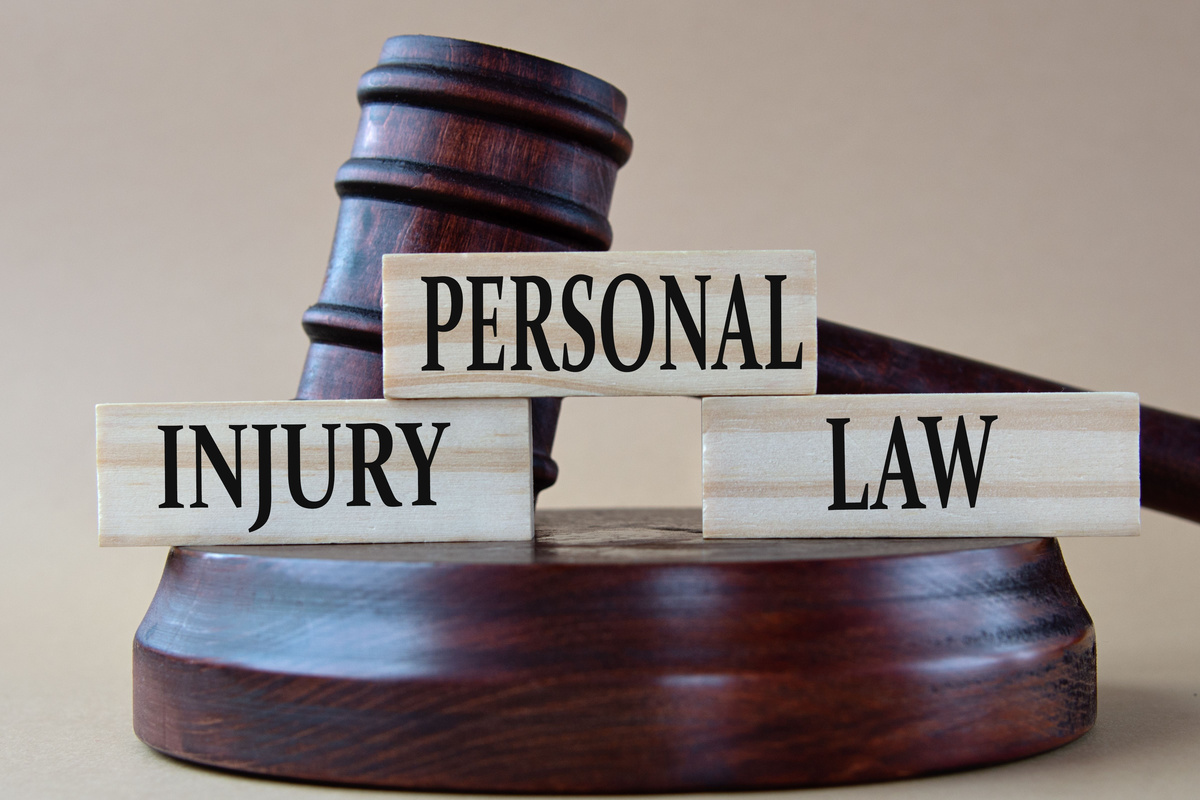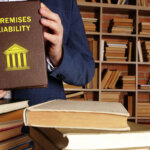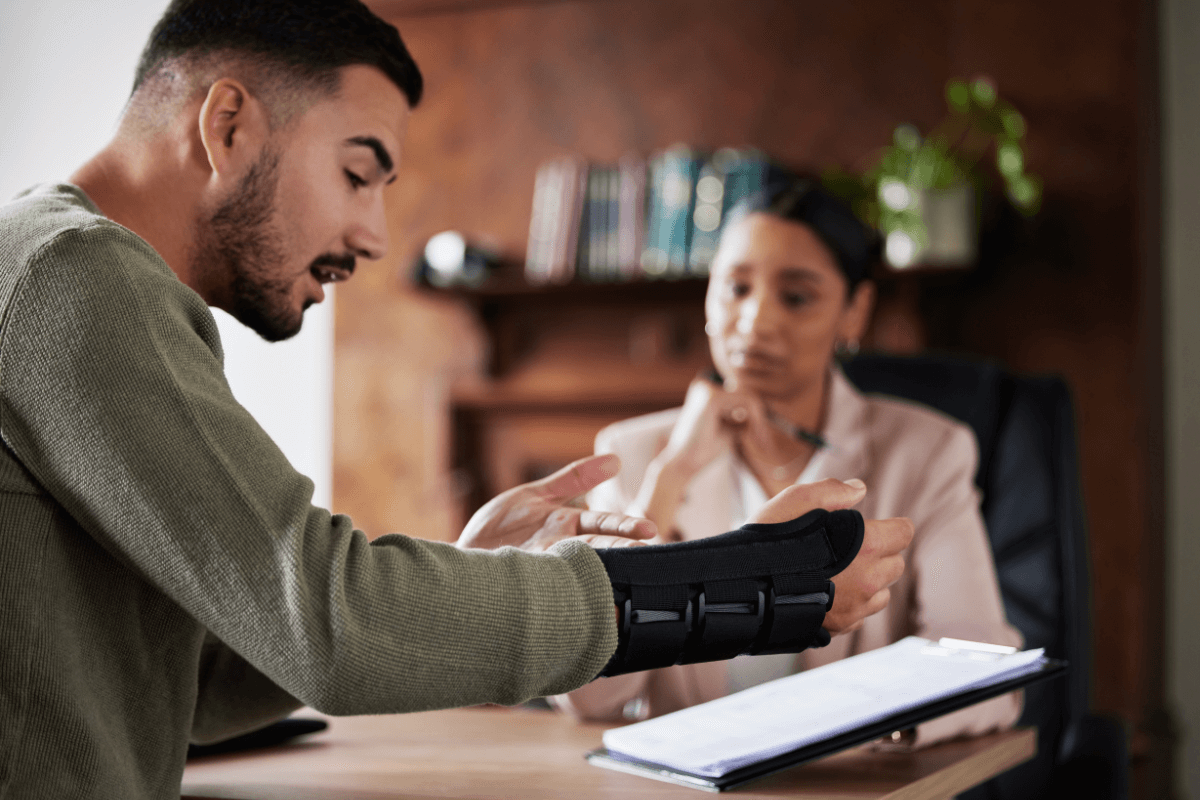
Partner at AKD Lawyers
Practice Areas: Insurance Claims

What price for an injured back or totaled car? “Damages” in personal injury refers to compensation – economic, non-economic, and punitive – that negligent parties may pay. Grasping these distinct categories is key to balancing the scales after an accident.
Comparing Key Points
| Type of Damages | Purpose | Examples |
| Economic | Compensates tangible financial losses | Medical expenses, lost wages, property damage |
| Non-economic | Compensates intangible losses | Pain/suffering, loss of enjoyment of life |
| Punitive | Punishes & deters egregious actions | Awarded if behavior was exceptionally reckless or malicious |
What are the three main types of damages in personal injury cases?
The three broad categories of damages in personal injury cases are economic, non-economic, and punitive. Economic damages cover tangible financial losses that can be calculated, like medical bills and lost income. Non-economic damages address intangible impacts such as pain and suffering. Punitive damages punish and deter exceptionally egregious behavior by the at-fault party.
In a personal injury case, “damages” refer to the compensation a person may be entitled to due to another party’s negligence or intentional misconduct. The core concept revolves around making the injured party “whole” again. The idea is not to provide a windfall to the person injured, but to restore them, as closely as possible, to the position they were in before the incident.
These damages often fall into three broad categories:
- economic,
- non-economic,
- and punitive.
Each category is distinct, serving different purposes and calculated differently. Understanding these categories is vital in comprehending the full scope of personal injury law.
Grasping the Fundamentals: A Look into Economic Damages
Economic damages, often called “special damages,” represent the tangible, out-of-pocket costs experienced by an individual due to an injury. These damages can be calculated fairly directly because they represent actual money spent or lost as a result of the incident.
Examples of economic damages include medical bills, property damage, lost wages due to missed work, and costs for future care or treatment related to the injury. The purpose of economic damages is to replace what the injured person lost financially.
Documenting Your Losses: The Components of Economic Damages
When an accident or mishap occurs, the resulting economic damages are often multifaceted. To start, medical expenses can pile up quickly, ranging from immediate emergency care to long-term therapies. Additionally, the accident might leave a person unable to work, leading to lost income.
If the injury is severe, there could be a loss of earning capacity, meaning the injured party cannot earn the same amount of money in the future as they could before the incident. Finally, there might be property damage to consider, such as a wrecked vehicle or broken items. In essence, all the tangible financial losses stemming from the incident are components of economic damages.
Beyond the Monetary: Unpacking Non-Economic Damages
Non-economic damages, also referred to as “general damages,” cover intangible losses that don’t have a specific dollar amount. These losses can be difficult to calculate because they relate to the impact the injury has on a person’s life, not their wallet.
Pain and suffering is a prime example, accounting for both physical discomfort and emotional distress. Other non-economic damages include loss of enjoyment of life if the injury stops the individual from engaging in hobbies or activities they once loved.
Furthermore, a significant injury could lead to disfigurement or permanent disability, which also falls under non-economic damages. In short, these damages address the emotional and psychological effects of an injury.
Emotional Trauma and Lifestyle Impact: The Role of Non-Economic Damages
In 2023, a Louisiana man who suffered from mesothelioma due to asbestos exposure at his past workplace was awarded a staggering $10.1 million for his past and future physical and mental pain and suffering; past and future physical disability and his past and future loss of enjoyment of life.
Non-economic damages play a crucial role in acknowledging the emotional trauma and lifestyle impact that often accompany personal injuries. Like the example above, someone who suffers a severe injury might experience significant emotional distress, such as anxiety or depression.
Additionally, they might endure a loss of enjoyment of life if they can no longer participate in hobbies or activities they previously cherished. Non-economic damages also cover life-altering situations such as disfigurement or permanent disability. While these impacts aren’t as easily quantifiable as economic damages, they are just as real. These damages offer a way to acknowledge and address the less tangible, but deeply significant effects of personal injuries.
A Lesson in Deterrence: The Concept of Punitive Damages
Punitive damages differ significantly from economic and non-economic damages. While the latter two aim to compensate the injured party, punitive damages serve a different purpose: to punish the party at fault and discourage similar conduct in the future. These damages are not awarded in every case but are typically reserved for situations where the offending party’s behavior was particularly egregious or malicious.
The goal of punitive damages is to punish this serious misconduct and deter others from similar actions.
This additional financial penalty sends a message of deterrence, signaling that such behavior is not just unacceptable but also carries severe financial consequences.
High Stakes Misconduct: When Punitive Damages Come into Play
Punitive damages come into play in personal injury cases when the behavior of the at-fault party is exceptionally reckless, wanton, or malicious. It’s not enough for someone to be merely negligent. For punitive damages to be considered, there must be clear evidence that the wrongdoer’s conduct was deliberately harmful or showed a complete disregard for others’ safety.
For example,
In 2022, a jury awarded $12 million to the estate of a Louisiana woman because her insurance company, USAA, delayed paying out her insurance claims for damage caused by Hurricane Katrina for seven years.
The goal of punitive damages is to punish this serious misconduct and deter others from similar actions.
Balancing the Scale: How Damages are Calculated in Personal Injury Cases
Calculating damages in personal injury cases requires a careful analysis of the different types of losses incurred. For economic damages, it is a matter of adding up all quantifiable expenses, such as medical bills, property damage, and lost earnings. Non-economic damages, however, are more subjective.
The court will consider factors such as the severity of the injury, the level of pain and suffering, and the impact on the individual’s quality of life. In terms of punitive damages, the court weighs the severity of the wrongdoer’s actions, with the aim to discourage similar conduct. While there’s no exact formula, these components come together to balance the scale and ensure fair compensation.
Ensuring Fair Compensation: The Crucial Role of Evidence in Proving Damages

In a personal injury case, the burden of proof lies with the injured party to demonstrate the extent of their damages. Evidence plays a crucial role in this process. For economic damages, evidence might include medical bills, pay stubs, or property damage estimates.
Non-economic damages, on the other hand, can be proven with personal journals documenting daily pain, statements from family and friends, or expert testimony on the injury’s impact on the individual’s lifestyle.
If seeking punitive damages, evidence of the wrongdoer’s malicious intent or gross negligence is required. Through careful documentation and collection of evidence, an injured party can help ensure they receive fair compensation for their losses.
In the evolving landscape of personal injury law, understanding specific nuances becomes essential. For instance, the rise of autonomous vehicles has introduced new challenges in determining liability and damages. Similarly, regions like New Orleans have unique laws that can significantly impact a personal injury case.
Before proceeding with a claim, it’s crucial to determine if you have a valid personal injury claim. Moreover, while navigating through the legal maze, it’s interesting to note some of the crazy laws in Louisiana that might surprise many. And if your injury is work-related, the dynamics change even further, necessitating specialized knowledge.
If you are dealing with a personal injury case, contact Alvendia Kelly & Demarest today at 504-618-1638 to schedule a free consultation.
Categories
- Bicycle Accidents
- Car Accident
- Case results
- Class Action
- Community Aid
- COVID-19
- Fun
- General
- Hard Rock Lawsuits
- Holiday
- Insurance Claims
- Legal Advice
- Mardi Gras Accident Attorney
- Mass Tort
- Medical
- Motorcycle Accident
- Personal Injury
- Practices
- Premise Liability
- Recent News
- Safety
- Truck Accidents
- Uncategorized
- Weather
- Work-Related Accident

In 2003, after being dissatisfied with the quality of legal care for victims of car accidents, Roderick ‘Rico’ Alvendia sought to establish a new firm focused on providing high-quality legal services to aid injured victims and their families. J. Bart Kelly, sharing Rico’s passion for upholding justice, joined the firm later that year, and established a partnership.






